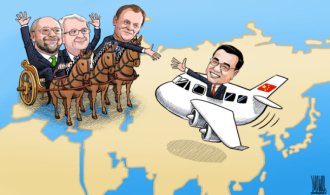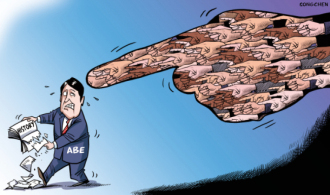Cost of restructuring bearable
By WU YIXUE (China Daily) Updated: 2016-03-02 07:54
 |
|
A worker is pictured in Shougang Jingtang United Iron & Steel Co on Aug 28, 2014. [Photo / Xinhua] |
Since China has made clear its resolve to promote the restructuring of sectors plagued by excessive overcapacity, there has been speculation at home and abroad whether the country will launch a new round of large-scale layoffs from factories.
Western media have called it "one of the largest single layoffs in history" as China's labor minister announced on Monday plans to lay off roughly 1.8 million workers in the coal and steel sectors as part of the efforts to curb industrial overcapacity. But any over-exaggeration of the number of layoffs or the threat the layoffs may cause social stability will be wide of the mark.
China has realized fast and admirable economic development over the past decades, but such kind of development was achieved by sacrificing the environment and resulted in overcapacity in a number of sectors. The blind expansion of the coal and steel industries at the time when China managed to keep its economy growing at full speed has finally caused such serious overproduction in these two sectors that a top official in North China's Shanxi province recently complained the profit from selling a ton of coal is lower than selling one bottle of alcohol. Likewise, steel manufacturers have complained that steel is sold for the same price as Chinese cabbage.
Meanwhile, "zombie enterprises" in the sectors with a serious glut of production have not only wasted huge amounts of resources, they are also a drag on the country's pursuit of more efficient, greener and healthier economic development.
The enormous economic and social resources it can now mobilize and the better-developed domestic employment market mean that China's current pressures resulting from the elimination of overproduction are no larger than those in the 1990s when widespread, large-scale reforms were launched to streamline poorly performing State-owned enterprises.
The establishment of an enormous special fund by the central government will also guarantee the appropriate resettlement of displaced workers. To lubricate the transformation from an investment and export-fuelled economy to an efficient, consumption powered one, China must bear the cost of restructuring its inefficient enterprises and reducing capacity.











